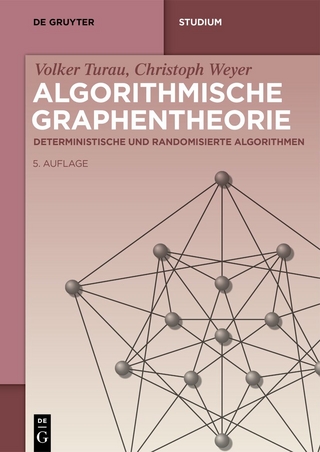
Agile Software Development
Addison Wesley (Verlag)
978-0-201-69969-2 (ISBN)
- Titel erscheint in neuer Auflage
- Artikel merken
"Coming of age for software developers means understanding that software is a cooperative effort, not something individuals do in isolation. This is a book that teams of software developers can thrive upon, full of sensible advice for a cooperative development approach."
--Tom DeMarco, The Atlantic Systems Guild
Software development paradigms are shifting. The development group's "team" ability, and the effects of the individual developer, become more important as organizations recognize that the traditional approach of increasing process pressure and overworking team members is not meeting getting the job done. The pioneers of Agile methodologies question the preconceived processes within which development teams work. Rather than adding to the burden of the individual developer, Agile asks "how can we change the process so that the team is more productive, while also improving quality?" The answer is in learning to play the "game."
Written for developers and project managers, Agile Software Development compares software development to a game. Team members play the game knowing that the ultimate goal is to win--always remembering what they have learned along the way, and always keeping in mind that they will never play the same way twice. Players must keep an open mind to different methodologies, and focus on the goal of developing quality software in a short cycle time.
Based on a decade's work and research, and interviews with software project teams, this book presents sound advice for bringing difficult projects to successful conclusion with a minimum of stress. It includes advice on:
The principals behind agile methodologies
Which methodologies fit different projects--including appendixes to select the appropriate methodology on a project
New vocabulary for describing methodologies
Just-in-time methodology tuning
Managing the incompleteness of communication
Continuous methodology reinvention
The manifesto for agile software development
Today's software developers need to recognize that they have a number of methodologies to choose from. With this book as a guide, they can break free of nonproductive habits, move beyond old routines, and clear a new path to success.
0201699699B09142001
Alistair Cockburn is a recognized expert on use cases. He is consulting fellow at Humans and Technology, where he is responsible for helping clients succeed with object-oriented projects. He has more than twenty years of experience leading projects in hardware and software development in insurance, retail, and e-commerce companies and in large organizations such as the Central Bank of Norway and IBM. 0201699699AB07302002
List of Figures.
List of Stories.
Preface.
Introduction: Unknowable and Incommunicable.
The Problem with Parsing Experience.
The Impossibility of Communication.
Three Levels of Listening.
So, What Do I Do Tomorrow?
Chapter 1: A Cooperative Game of Invention and Communication.
Software and Poetry.
Software and Games.
A Second Look at the Cooperative Game.
What Should This Mean to Me?
2. Individuals.
Them's Funky People.
Overcoming Failure Modes.
Working Better in Some Ways than Others.
Drawing on Success Modes.
What Should I Do Tomorrow?
3. Communicating, Cooperating Teams.
Convection Currents of Information.
Jumping Communication Gaps.
Teams as Communities.
Teams as Ecosystems.
What Should I Do Tomorrow?
4. Methodologies.
An Ecosystem That Ships Software.
Methodology Concepts.
Methodology Design Principles.
XP under Glass.
Why Methodology at All?
What Should I Do Tomorrow?
5. Agile and Self-Adapting.
Light but Sufficient.
Agile.
Becoming Self-Adapting.
What Should I Do Tomorrow?
6. The Crystal Methodologies.
Shaping the Crystal Family.
Crystal Clear.
Crystal Orange.
Crystal Orange Web.
What Should I Do Tomorrow?
Appendix A. The Agile Software Development Manifesto.
The Agile Alliance.
The Manifesto.
Supporting the Values.
Appendix B. Naur, Ehn, Musashi.
Peter Naur, Programming as Theory Building.
Pelle Ehn, Wittgenstein's Language Games.
Musashi.
Appendix C. Books and References.
Index. 0201699699T09252001
| Erscheint lt. Verlag | 29.10.2001 |
|---|---|
| Verlagsort | Boston |
| Sprache | englisch |
| Maße | 189 x 236 mm |
| Gewicht | 526 g |
| Themenwelt | Mathematik / Informatik ► Informatik ► Software Entwicklung |
| ISBN-10 | 0-201-69969-9 / 0201699699 |
| ISBN-13 | 978-0-201-69969-2 / 9780201699692 |
| Zustand | Neuware |
| Haben Sie eine Frage zum Produkt? |
aus dem Bereich



